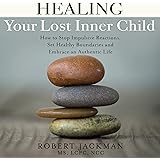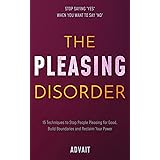The conversation featured in the video above challenges many long-held beliefs about nicotine, suggesting it’s far more complex than commonly understood. Far from being solely a harmful substance, emerging research indicates that nicotine, when isolated from tobacco, may offer significant therapeutic benefits, especially for brain health, memory, and focus.
This article dives deeper into the nuanced world of nicotine, exploring its natural origins, how it interacts with our brains, and the exciting potential it holds in medical research, particularly concerning conditions like Alzheimer’s and cognitive decline.
Understanding Nicotine: More Than Just a Tobacco Component
For centuries, nicotine has been primarily associated with tobacco, carrying a notorious reputation due to its connection with smoking. However, Dr. Paul Newhouse highlights a crucial distinction: nicotine is a chemical found not only in the tobacco plant but also in a variety of other plants, including common edibles like tomatoes.
This natural presence suggests that nicotine isn’t inherently “evil” but rather a compound with specific effects. The real problem, as researchers are discovering, lies with the myriad of other harmful chemicals found in tobacco products, not nicotine itself.
The Brain’s Intricate Dance with Nicotine Receptors
It might seem puzzling why our brains would possess “nicotine receptors” if the chemical were purely detrimental. The truth is fascinating: nicotine is an analog, meaning it mimics a naturally occurring brain chemical called acetylcholine.
Acetylcholine is a vital neurotransmitter, a chemical messenger that facilitates communication between nerve cells throughout your body, including your muscles, spinal cord, and especially the brain. The discovery of these specific receptors, named “nicotinic” over 150 years ago, was a pivotal moment, distinguishing them from another type called muscarinic receptors.
How Nicotinic Receptors Modulate Brain Activity
The role of these nicotinic acetylcholine receptors is deeply involved in modulating various brain networks and circuits. Imagine your brain’s activity as a complex sound system; these receptors act like the equalizer, capable of amplifying or dampening other neural circuits.
This modulation is incredibly dynamic, adapting to your specific environment, state of mind, and unique biology. Whether you need a boost in alertness or a calming effect, nicotine can influence these systems, acting as a powerful amplifier for both excitatory and inhibitory brain functions.
Nicotine’s Surprising Role in Balancing the Mind
This ability to modulate explains a truly intriguing aspect of nicotine: its potential as what Dr. Newhouse calls a “perfect psychotropic drug.” Unlike many substances that push you firmly in one direction, nicotine appears to help the brain achieve a balanced state.
Consider a scenario where you’re feeling highly anxious. Nicotine might induce a sense of calm. Conversely, if you need to be more hyper-alert for a demanding task, it could provide that necessary edge. The brain constantly strives for equilibrium, and nicotine seems capable of assisting in this delicate balancing act.
Separating Nicotine from Tobacco: The Core Difference
A critical point often misunderstood is whether the effects felt from smoking or vaping are solely due to nicotine or other substances. While the answer isn’t entirely clear, extensive research indicates that nicotine is the primary driver of the reinforcing and habit-forming aspects of tobacco use.
Without nicotine, denicotinized cigarettes lose their appeal, suggesting nicotine is necessary for the psychological effects. However, it’s not sufficient on its own for the profound harm associated with smoking, which comes from thousands of other chemicals, including carcinogens.
Current Research: Is Nicotine Safe Outside of Tobacco?
The safety of nicotine in the absence of tobacco is a highly significant and ongoing area of investigation, especially with the rise of non-tobacco nicotine products like sprays, vapes, and pouches. For many years, the direct health effects of pure nicotine have been shrouded in the harms of tobacco.
The good news is that therapeutic studies, including Dr. Newhouse’s own work, have shown promising results. They have administered nicotine long-term to non-smokers, even elderly individuals, without detecting negative health effects. This research provides a critical foundation for understanding nicotine’s isolated impact.
The Groundbreaking MIND Trial and Its Implications
One of the most significant ongoing studies in this field is the MIND trial, which began in 2018. This pivotal study examines the long-term effects of nicotine on memory and attention in patients experiencing memory loss, specifically those without a history of smoking.
Each participant in the MIND trial receives up to two years of daily nicotine treatment, completely free from tobacco. This rigorous approach, approved by the FDA based on existing safety data, aims to establish the most extensive database ever published on long-term nicotine use in non-smokers. Results, anticipated in early next year, are eagerly awaited to provide definitive answers regarding safety and efficacy.
Debunking Nicotine Addiction Myths
A common misconception is that nicotine itself is highly addictive, irrespective of how it’s consumed. This belief often stems from the intense addictiveness of smoking. Yet, research from studies like the MIND trial indicates that isolated nicotine, particularly when administered slowly, doesn’t appear to be inherently very addictive.
Researchers have observed that participants can discontinue nicotine patches abruptly, experiencing no withdrawal symptoms, cravings, or side effects. The key factor seems to be the speed and route of administration. Smoking delivers nicotine to the brain within seconds, creating a rapid, intense effect that significantly contributes to its habit-forming nature. Slower delivery methods, such as patches, mitigate this addictive potential.
The Future of Nicotine Research: Unbiased and Independent
Concerns have been raised about potential corporate influence, suggesting that nicotine companies might be pushing a positive narrative in the wellness world. However, Dr. Newhouse clarifies an important point about drug development: because nicotine is a natural compound with no remaining intellectual property (IP), pharmaceutical companies have no incentive to invest in developing it as a drug.
This means that funding for critical research, such as the MIND trial, comes from independent sources like the National Institutes of Health (NIH), specifically through the National Institute on Aging’s Alzheimer’s disease research and clinical trials programs. This ensures the research remains unbiased and focused solely on scientific discovery, rather than commercial interests.
The exploration of nicotine continues to unfold, promising a deeper understanding of its complex interactions with our bodies and its potential role in enhancing brain health and memory for those in need.











